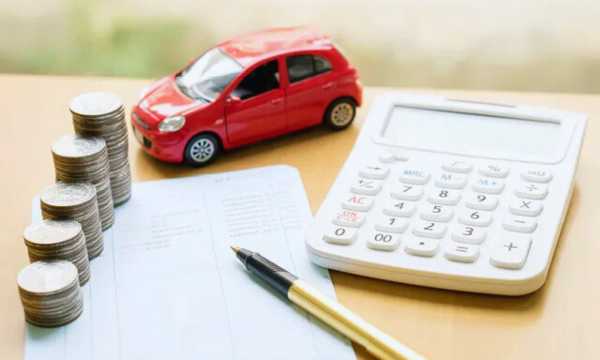Are you looking for a new car and are you unsure between leasing and financing? You are not alone.
ad
The decision to lease or finance a car is a question many potential car buyers face. In this article, we explain the differences between these two options so you can make an informed choice.
Leasing: pros and cons
Pros:
- Lower monthly payments: Leasing typically requires lower monthly payments compared to financing, which can free up more of your monthly budget for other expenses.
- Warranty Coverage: Most rental cars come with a warranty for the duration of the lease period. This means you don’t have to worry about expensive repairs, as the manufacturer usually covers these costs.
- Always drive a new car: Leasing allows you to drive a new car every few years, so you always have the latest model with the latest features.
Cons:
- Mileage Limits: Leaseholds have mileage limits and exceeding them can result in high overage fees. If you have a long commute or enjoy road trips, leasing may not be the best option for you.
- No title: When you lease a car, you don’t own it. At the end of the lease, you must return the vehicle unless you choose to purchase it, and the price is usually higher than the market value of the car.
Financing: pros and cons
Pros:
- Title: When you finance a car, you own the car once the loan is paid off. This means you can keep the car as long as you want and make adjustments as needed.
- No mileage limits: There are no mileage limits on financed vehicles, so you can drive as much as you want without worrying about overage fees.
- Building equity: As you pay your car loans, you build equity in the vehicle. You can use this equity as a trade-in or as a down payment on your next car.
Cons:
- Higher monthly payments: Financing typically requires higher monthly payments compared to leasing. This can put a strain on your monthly budget.
- Responsible for Repairs: Once the warranty expires, you are responsible for all repair costs, which may add up over time.
- Depreciation: Cars tend to depreciate in value, and if you finance, you bear the full impact of that depreciation.
Weigh your Options
When making your decision, consider the following factors to help you weigh your options:
ad
- Budget: Your budget is a key factor in deciding whether to lease or finance. If you have a strict monthly budget, leasing can offer lower payments, freeing up money for other expenses. While financing typically results in higher monthly payments, it increases equity over time and can save you money in the long run.
- Driving behavior: The amount of time you spend driving can significantly influence your decisions. If you have long commutes every day or make regular car trips, take into account the mileage limitations that come with leasing. If you’re not concerned about mileage limits and want the freedom to drive, financing may be a better fit.
- Ownership Comparison Convenience: Think about your long-term goals for a car. Do you want to own it outright, customize it as you see fit, and not have to worry about returning it at the end of the lease? Then the financing meets your desire for ownership. However, if you prefer the convenience of buying a new car every few years without having to worry about repairs, leasing may be more attractive.
- Warranty and repairs: Leases typically come with an extended warranty for the entire lease term, meaning you don’t have to worry about expensive repairs. When financing, you are ultimately responsible for maintenance and repair costs, which can add up, especially after the warranty expires. This is an important factor to consider in long-term financial planning.
- Depreciation: Keep in mind that the value of your car will decrease over time. Leasing protects you against a decline in the value of the car because you return the car at the end of the lease period. Financing means you bear the full burden of depreciation, which can affect the trade-in or resale value of the car when you decide to sell it.
- Long-term versus long-term short-term commitment: Leasing is typically a short-term commitment, typically lasting two to three years, while financing typically lasts four to six years or more. Consider how long you want to keep the car and whether you are willing to enter into a longer-term financial agreement.
Conclusion
In conclusion, there is no clear-cut answer to the question of whether car leasing or financing is the better option. Your choice should suit your lifestyle, preferences, and financial situation. Before making a decision, take the time to assess your priorities and needs. It’s critical to understand the terms of your lease and financing agreements and read the fine print to avoid surprises.
Ultimately, the right choice is the one that gives you the greatest value, satisfaction, and peace of mind. Whether you choose the flexibility of leasing or financing the security of car ownership, your decision should fit your unique situation and help you achieve your automotive goals.
FAQs
1. What are the main differences between car leasing and financing?
A car lease is essentially a long-term lease of a vehicle where you pay a monthly fee to use the car but do not own it. Car financing, on the other hand, involves taking out a loan to purchase a vehicle, and once the loan is paid off, you become the owner of the vehicle.
2. Are the monthly payments for leasing generally lower than for financing?
Yes, lease payments are generally lower than financing payments. That’s because you only pay the car’s depreciation over the lease term, while financing covers the entire cost of the vehicle.
3. How does warranty work with leasing and financing?
Lease agreements typically cover the vehicle under the manufacturer’s warranty for the duration of the lease, giving you peace of mind when making repairs. With financing, on the other hand, you are responsible for maintenance and repairs once the warranty expires.
4. Can I buy the lease car after the lease contract has expired?
Yes, most lease agreements give you the option to buy the car at the end of the lease period, usually at a predetermined price (called residual value). If you become interested in the car and want to keep it, this could be a good option.
5. What happens to the car after the financing term ends?
When you pay off your car loan, you own the car outright. You can choose to keep driving it, sell it or trade it in. It’s entirely up to you.


